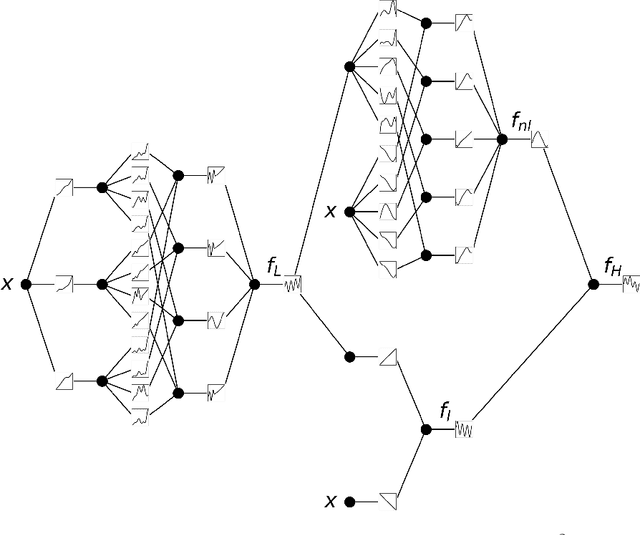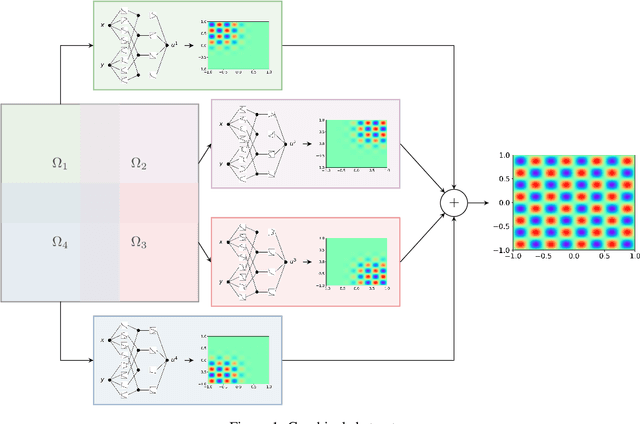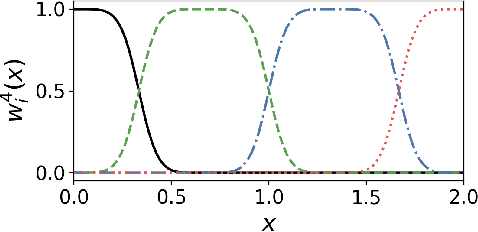Bruno Jacob
E-PINNs: Epistemic Physics-Informed Neural Networks
Mar 25, 2025



Abstract:Physics-informed neural networks (PINNs) have demonstrated promise as a framework for solving forward and inverse problems involving partial differential equations. Despite recent progress in the field, it remains challenging to quantify uncertainty in these networks. While approaches such as Bayesian PINNs (B-PINNs) provide a principled approach to capturing uncertainty through Bayesian inference, they can be computationally expensive for large-scale applications. In this work, we propose Epistemic Physics-Informed Neural Networks (E-PINNs), a framework that leverages a small network, the \emph{epinet}, to efficiently quantify uncertainty in PINNs. The proposed approach works as an add-on to existing, pre-trained PINNs with a small computational overhead. We demonstrate the applicability of the proposed framework in various test cases and compare the results with B-PINNs using Hamiltonian Monte Carlo (HMC) posterior estimation and dropout-equipped PINNs (Dropout-PINNs). Our experiments show that E-PINNs provide similar coverage to B-PINNs, with often comparable sharpness, while being computationally more efficient. This observation, combined with E-PINNs' more consistent uncertainty estimates and better calibration compared to Dropout-PINNs for the examples presented, indicates that E-PINNs offer a promising approach in terms of accuracy-efficiency trade-off.
SPIKANs: Separable Physics-Informed Kolmogorov-Arnold Networks
Nov 09, 2024Abstract:Physics-Informed Neural Networks (PINNs) have emerged as a promising method for solving partial differential equations (PDEs) in scientific computing. While PINNs typically use multilayer perceptrons (MLPs) as their underlying architecture, recent advancements have explored alternative neural network structures. One such innovation is the Kolmogorov-Arnold Network (KAN), which has demonstrated benefits over traditional MLPs, including faster neural scaling and better interpretability. The application of KANs to physics-informed learning has led to the development of Physics-Informed KANs (PIKANs), enabling the use of KANs to solve PDEs. However, despite their advantages, KANs often suffer from slower training speeds, particularly in higher-dimensional problems where the number of collocation points grows exponentially with the dimensionality of the system. To address this challenge, we introduce Separable Physics-Informed Kolmogorov-Arnold Networks (SPIKANs). This novel architecture applies the principle of separation of variables to PIKANs, decomposing the problem such that each dimension is handled by an individual KAN. This approach drastically reduces the computational complexity of training without sacrificing accuracy, facilitating their application to higher-dimensional PDEs. Through a series of benchmark problems, we demonstrate the effectiveness of SPIKANs, showcasing their superior scalability and performance compared to PIKANs and highlighting their potential for solving complex, high-dimensional PDEs in scientific computing.
Multifidelity Kolmogorov-Arnold Networks
Oct 18, 2024



Abstract:We develop a method for multifidelity Kolmogorov-Arnold networks (KANs), which use a low-fidelity model along with a small amount of high-fidelity data to train a model for the high-fidelity data accurately. Multifidelity KANs (MFKANs) reduce the amount of expensive high-fidelity data needed to accurately train a KAN by exploiting the correlations between the low- and high-fidelity data to give accurate and robust predictions in the absence of a large high-fidelity dataset. In addition, we show that multifidelity KANs can be used to increase the accuracy of physics-informed KANs (PIKANs), without the use of training data.
Finite basis Kolmogorov-Arnold networks: domain decomposition for data-driven and physics-informed problems
Jun 28, 2024



Abstract:Kolmogorov-Arnold networks (KANs) have attracted attention recently as an alternative to multilayer perceptrons (MLPs) for scientific machine learning. However, KANs can be expensive to train, even for relatively small networks. Inspired by finite basis physics-informed neural networks (FBPINNs), in this work, we develop a domain decomposition method for KANs that allows for several small KANs to be trained in parallel to give accurate solutions for multiscale problems. We show that finite basis KANs (FBKANs) can provide accurate results with noisy data and for physics-informed training.
 Add to Chrome
Add to Chrome Add to Firefox
Add to Firefox Add to Edge
Add to Edge